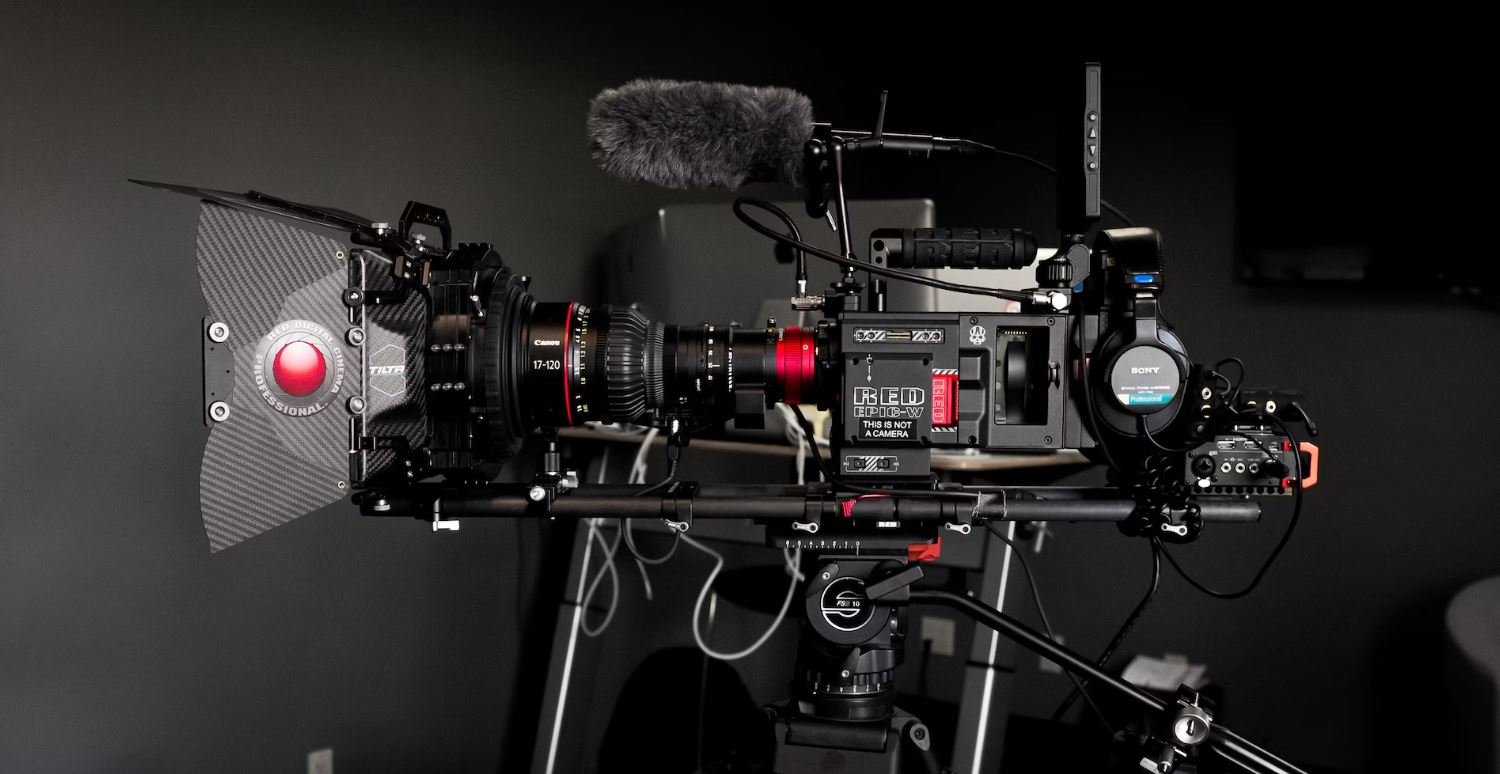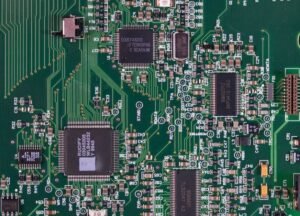AI Audio Production
The field of audio production has been revolutionized by advancements in artificial intelligence (AI). AI technologies have made it easier and more efficient to create high-quality audio content, from music production to podcast editing. With the help of AI, audio producers can automate repetitive tasks, enhance audio quality, and even generate music compositions. In this article, we will explore the various ways in which AI is transforming the audio production industry and the benefits it brings to both professionals and aspiring creators.
Key Takeaways
- AI in audio production automates repetitive tasks, enhancing productivity.
- AI-powered tools improve audio quality, enhancing the listening experience.
- AI can generate music compositions and assist in creative decision-making.
One of the notable advantages of using AI in audio production is its ability to automate repetitive tasks. **AI-powered tools** can analyze audio tracks, separate different elements (such as vocals, instruments, and background noise), and even clean up audio recordings by removing unwanted sounds. This automation not only saves time but also allows audio producers to focus on more creative aspects of their production process. Implementing AI in audio production workflows significantly increases **efficiency** and **productivity**.
*AI technologies have proven particularly useful in improving audio quality*. Through **audio restoration algorithms** and **noise reduction techniques**, AI can enhance the quality and clarity of audio recordings. This is especially beneficial in cases where audio is compromised by background noise or other imperfections. By applying advanced AI algorithms, audio producers can ensure their listeners enjoy a **crisp and immersive** audio experience.
To demonstrate how AI is capable of creating music, let’s consider the use of **neural networks** in generating **musical compositions**. AI algorithms can analyze vast amounts of musical data and learn patterns, structures, and harmonies. This allows them to generate new melodies, chord progressions, and even entire compositions that follow certain styles or genres. AI-generated music has sparked a new wave of experimentation in the music industry, blurring the lines between human and AI creativity.
The Power of AI in Audio Production
Let’s dive deeper into the various ways in which AI is transforming the audio production landscape:
- Vocal Enhancement: AI tools can isolate and enhance vocals in a recording, making them clearer and more prominent.
- Audio Mixing: AI algorithms can automatically balance and EQ audio tracks, resulting in a well-balanced mix.
- Beat Detection: AI can accurately detect the tempo, rhythm, and beat of a piece of music.
- Automatic Transcription: AI can transcribe spoken words into text, making it easier to edit audio content.
*AI’s impact on the audio production industry extends beyond technical enhancements*. The ability of AI algorithms to analyze and process vast amounts of data enables them to assist in creative decision-making. For instance, by analyzing tracks from successful songs in a specific genre, AI can suggest chord progressions or melodic variations that align with established musical conventions. This assists composers and producers in exploring new creative directions while staying true to the genre’s essence.
AI’s Role in Podcast Production
Podcast production has also benefited greatly from AI advancements. Let’s take a look at some ways in which AI is transforming podcast production:
- Speech-to-Text Transcription: AI can transcribe podcast episodes, making them searchable and easily editable.
- Automated Editing: AI tools can analyze audio recordings and remove filler words, lengthy pauses, and other unwanted segments.
- Language Translation: AI-powered translation tools can facilitate the global reach of podcast content.
Podcasters can save an immense amount of time and effort by utilizing AI-powered transcription and editing tools. *These advancements enable podcasters to streamline their editing process and ensure a polished final product*. Additionally, AI’s language translation capabilities allow podcast episodes to reach a wider international audience, breaking down language barriers.
Data Points and Statistics
| AI’s Impact on Audio Production | |
|---|---|
| Time saved through AI automation | 40-60% |
| Global revenue generated by AI-powered audio production | $1.8 billion (2021) |
| AI’s Influence on Music creation | |
|---|---|
| Songs released with AI-generated elements | Over 1,000 (2021) |
| Percentage of music producers using AI tools | 63% |
| Podcast Production and AI | |
|---|---|
| Number of active podcasts worldwide | 2 million+ |
| Reduction in editing time using AI tools | Up to 50% |
To summarize, AI has revolutionized the audio production industry, offering enhanced productivity, improved audio quality, and creative assistance. From music production to podcast editing, AI-powered tools have become invaluable assets for audio professionals and aspiring creators alike. As the technology continues to advance, we can expect even more exciting developments and innovations in the field of AI audio production.

Common Misconceptions
About AI Audio Production
There are several common misconceptions that people hold regarding AI audio production. Here are some of them:
Misconception 1: AI Will Replace Human Musicians
One common misconception is that AI technology will completely replace human musicians in audio production. However, this is not true. AI can be a valuable tool for assisting musicians and producers in the creative process, but it cannot replicate the unique artistic sensibilities, emotions, and personal touch that human musicians bring to their work.
- AI can help generate musical ideas and assist with composition, but it lacks the ability to create genuinely new and innovative music.
- Human musicians possess the ability to infuse their performances with emotion and soul, something that AI has yet to fully achieve.
- Collaboration between AI and human musicians can lead to exciting and innovative musical creations that wouldn’t be possible with AI alone.
Misconception 2: AI Can Fully Automate the Audio Production Process
Another misconception is that AI can fully automate the audio production process, eliminating the need for human involvement. While AI can automate certain tasks and streamline workflows, there are still essential creative and subjective decisions that require human judgment.
- AI can automate repetitive and time-consuming tasks like audio editing, mixing, and mastering, increasing efficiency and productivity.
- However, creative choices such as selecting the right sounds, arranging musical elements, and implementing artistic effects require human expertise and intuition.
- Human producers bring a depth of musical knowledge and interpretation that cannot be replicated by AI algorithms.
Misconception 3: AI Always Delivers Perfect Results
One misconception is that AI always delivers perfect results in audio production. However, AI technology is not flawless and still has limitations. It can excel in certain areas but may struggle with nuanced human preferences and subjective musical aspects.
- AI relies on pre-existing data and patterns, meaning it may not always generate original or innovative music.
- In some cases, AI-produced audio may lack the subtle nuances and imperfections that give human performances their unique character and charm.
- Human musicians and producers can discern and adapt to the specific needs of a project, making subjective decisions that AI algorithms may struggle with.
Misconception 4: AI Decreases the Demand for Skilled Audio Professionals
Some people believe that AI technology will decrease the demand for skilled audio professionals. While AI can automate certain tasks, it also opens up new possibilities and requires professionals with expertise in integrating AI technology into the audio production process.
- Skilled audio professionals are indispensable in using AI tools effectively and creatively.
- By embracing and understanding AI technology, professionals can enhance their workflows and deliver more refined and innovative audio productions.
- AI can free up professionals’ time from repetitive tasks, allowing them to focus on more creative and high-level aspects of audio production.
Misconception 5: AI Completely Eliminates the Need for Musical Skill and Training
Finally, a misconception people have is that AI completely eliminates the need for musical skill and training. AI technology can provide valuable assistance, but it cannot substitute for the years of practice, training, and experience that skilled musicians and audio professionals possess.
- AI tools are only powerful as the people who use them. Musicians and producers with a strong foundation in musical theory and technique can leverage AI technology to enhance their creativity and productivity.
- Professionals with a deep understanding of audio engineering and sound design can utilize AI algorithms effectively to achieve desired sonic results.
- AI technology complements and augments the skills and knowledge of audio professionals but does not replace them.

In recent years, artificial intelligence (AI) has revolutionized various industries, including audio production. AI algorithms and technologies are being employed to enhance audio quality, automate audio processing tasks, and assist in music composition. The following table highlights some intriguing aspects and advancements in AI audio production.
Table 1:
AI Audio Production Applications
———————————————————–
Application | Description
———————————————————–
1. Noise Cancellation | AI algorithms remove background
| noise from audio recordings.
2. Vocal Separation | AI algorithms extract vocals
| from mixed audio tracks.
3. Auto-Tune | AI software corrects pitch
| imperfections in recordings.
4. Beat Extraction | AI detects and isolates beats
| from audio tracks.
5. Lyric Generation | AI generates lyrics based on given
| musical patterns or themes.
6. Virtual Instruments | AI simulates realistic sounds of
| various musical instruments.
7. Music Generation | AI creates original compositions
| based on user preferences.
8. Audio Mixing | AI automates the task of
| balancing audio levels.
9. Sound Design | AI suggests and creates sound
| effects for multimedia projects.
10. Audio Restoration | AI repairs and enhances
| degraded audio recordings.
AI-driven audio production has significantly streamlined the creative process for professionals in the music industry and beyond. It has enabled faster audio processing, increased productivity, and enhanced the overall quality of audio productions. These advancements have opened up new possibilities for artists and creators, empowering them to explore innovative approaches in their craft. As AI technology continues to evolve, we can expect even more exciting developments on the horizon.
In conclusion, AI audio production has revolutionized various aspects of the industry by offering advanced tools and automation capabilities. It has drastically improved the audio production process, bringing efficiency, quality, and creativity to new heights. With the continuous advancements in AI technology, the future of audio production looks incredibly promising. As we embrace these innovations, we can expect even more sophisticated and captivating audio experiences in the years to come.
Frequently Asked Questions
How does AI audio production work?
AI audio production utilizes artificial intelligence algorithms to automate various aspects of audio production, such as sound editing, mixing, and mastering. By leveraging machine learning techniques, AI can analyze audio data, identify patterns, and make decisions to enhance the production process.
What are the advantages of using AI audio production?
AI audio production offers several benefits, including increased efficiency, consistency, and quality. AI algorithms can perform tasks in a fraction of the time it takes for humans, ensuring faster turnarounds. Moreover, the use of AI eliminates human errors and provides a consistent output throughout the production process.
Can AI completely replace human audio producers?
No, AI cannot completely replace human audio producers. While AI can automate certain tasks and enhance the production process, human creativity, intuition, and critical decision-making abilities are still essential in audio production. AI should be seen as a tool to augment and support human producers rather than a complete replacement.
What tasks can AI perform in audio production?
AI can perform tasks such as audio noise reduction, automatic equalization, audio source separation, intelligent audio synthesis, and even music composition. Additionally, AI can analyze audio data to provide insights on audio quality and automatically generate audio tags or metadata.
Are there any limitations to AI audio production?
While AI audio production has come a long way, there are still limitations to consider. AI algorithms heavily rely on training data, and if the training data is biased or incomplete, it may affect the output results. Additionally, AI might struggle with subjective artistic decisions, making it less suitable for tasks that require human creativity and interpretation.
How can AI benefit the music industry?
AI can benefit the music industry in numerous ways. It can automate repetitive tasks, allowing artists to focus more on their creative processes. AI can also help in analyzing large datasets, making it easier to identify trends and patterns, resulting in more targeted marketing and personalized recommendations for music listeners.
Is AI audio production widely used in the industry today?
While AI audio production is gaining traction, it is not yet fully widespread in the industry. However, many professional audio production tools and software are incorporating AI features and functionality to enhance and streamline the production process. The adoption of AI is expected to increase in the future as technology advances.
Are there any ethical implications with AI audio production?
Yes, there can be ethical implications with AI audio production. It is important to consider issues such as copyright infringement, intellectual property rights, and the potential loss of jobs for audio professionals due to automation. Furthermore, ensuring the transparency and fairness of AI algorithms to avoid biases in the production process is crucial.
Where can I learn more about AI audio production?
To learn more about AI audio production, you can explore online resources, attend industry conferences, and workshops focused on audio technology and artificial intelligence. Additionally, there are online courses and tutorials available that provide in-depth knowledge on the subject.
Can AI audio production be integrated with existing audio production workflows?
Yes, AI audio production can be integrated with existing workflows. Many software tools and plugins offer AI-powered features that can be seamlessly integrated into the audio production process. This allows producers to leverage the benefits of AI while working with their familiar tools and workflows.




